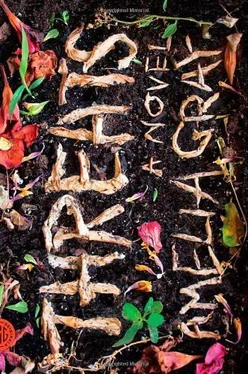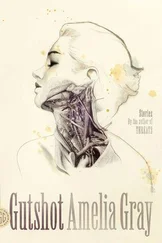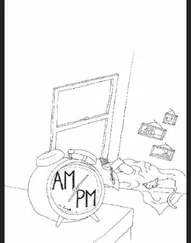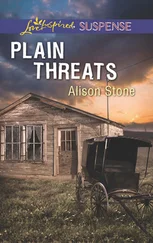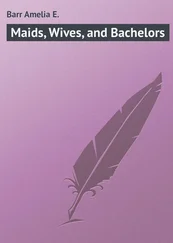THE TAPE ON THE PACKAGE was striped with waxed string. David dug his fingernails underneath the perimeter of the tape and clawed at it. He didn’t want to go to the kitchen for a knife, and he spent an extra piece of time examining the entire package to find the loose end that could be pulled up. Inside the package was a Styrofoam carton, sealed with another kind of thick tape. A receipt was attached to the top of the lid, noting a cremation charge of $795, a box charge of $25, and a shipping charge of $20.95.
The package measured a few feet square. It was pockmarked with red stickers printed with the image of a broken wineglass. The return address was of a funeral home in town. David placed the package on the coffee table between Franny’s cooking magazines and a stack of old newspapers. Some of the crosswords in the newspapers had been completed weeks earlier, perhaps months. Franny would read the news, and David would complete the crosswords. David took the newspapers into the basement and stacked them in a far corner.
FRANNY had never faulted him his confusions. Once, a group of squabbling jays stopped them on a walk. Two of the birds were circling each other, ducking and weaving, thrusting beak to wing, falling back. The group around that central pair collectively made a noise like rushing water. They spread their blue wings. It looked like someone had dropped a scarf on the ground. They moved in a unified line around the fighters in the center.
She took his hand. “You’re in the road,” she said.
He knew he had found a good woman in Franny. After only a few months of movie dates, they announced their engagement. The two of them took David’s father out to dinner and told him as the main course arrived. David’s father thought about how tall Franny was, how much taller she was than his son. Even with the two of them sitting across the table from him, he could see the fine, straight lines of Franny’s spine holding her higher than his poor thirty-year-old son, balding young, who scrabbled after a piece of meat with one side of his fork. Franny seemed stronger and older and smarter than his boy. She used her butter knife to push the errant cube of steak onto David’s probing fork without breaking eye contact with David’s father. Still , David’s father thought, marry a straight spine and she’ll grow into a walking stick.
David’s regular patients asked the most questions. There were his childhood friends, Samson and the other one, the one whose name David could never remember even when he held the man’s file, a file containing a near lifetime of dental history, on his lap. David kept in contact with his old friends over time because they came in yearly for checkups. They usually spoke of the small success and general failure of local sports. The hygienists were the ones who had let the engagement news slip, and then David was cajoled into producing a picture of his future bride, and then everyone asked about her grip strength and cooking skill, and if she could help them move a dinner table to a third-floor apartment.
The questions they asked were forward but mostly not impolite. One of his patients who worked in the art department at the local community college asked if Franny could stand for his life-drawing class, speculating that her anatomy would lend itself to easier visual interpretation.
“She’s massive,” said an uncle on his father’s side, who came in from the country every few years for his teeth and had received an e-mail from the hygienists that included an image attachment. “I mean that kindly,” he said, insisting it over the sound of applied suction.
David knew that his family and his patients were only trying to piece together the physical mystery of Franny. The truth was that he had always felt he was an average-size man until he met her and realized how small he truly was. He appreciated the perspective.
FRANNY HAD RUN AWAY from home as a teenager and ridden the bus alone. David asked what made her do that, and she said there was nothing else going on. She remembered the time fondly. In order to buy the tickets, she spent her paychecks from working at a food court shake shop at the mall. She took a bus to visit a town with a coal-mine fire that would slowly burn striated fault lines for the next hundred years. The blaze had evacuated the area a decade before. Franny walked around while eating a cheeseburger from the bus terminal café. She lay on a bare patch of dirt at a school playground in the middle of the Pennsylvania winter and felt warm. A vent in the earth released a sour smell. The heat from the vent steamed against the falling snow, turning it to a drizzle before it hit the ground.
Though she never touched tobacco as an adult, teenage Franny would pluck cigarette butts from the kitty litter trays by the bus terminal door and smoke the dregs. One of the other passengers might witness this act and stroll over to offer the girl a cigarette from his pack, but she would refuse. She figured a whole cigarette would make her sick. Often, the cigarettes she found carried lipstick marks, like blushing thumbprints, and Franny would light up and imagine the kind of woman who applied lipstick to make the trip between Ohio and Michigan.
The filters she examined were ivory-colored and darkened in a spectrum that revealed the pull of the previous user. She could find plenty of near-new smokes in an ashtray at any given bus stop owing to people running to make their connection. She smiled when she thought of those years but admitted that it was a true miracle that she did not contract oral thrush. It seemed to David as if she could leave at any moment. She would get that look in her eye.
HE KNEW FRANNY had been behind the house. She wore a scarf colored red like the berries that grew back there. Her feet were bare and her ankles were slick with fluid. “Something has happened,” Franny said.
She was standing at the bottom of the stairs. She held the rail and tipped her head back to look at her husband. They held the same rail. “You’ve been tromping berries,” he said.
“It’s blood.” She held the stair’s rail and vomited down the front of her dress. “Could you call for help?” she asked, wiping her mouth with her fingers.
“Of course,” he said. He commanded his body to find a telephone and determine its use. “What’s the problem?”
“God, damn it,” she said.
“What did you do?” he asked. “What happened?”
“Could you call the fire department?” She sat on the stairs and leaned against the wall with her back to him. He came down and sat next to her. He touched her cold face with his hands. “You don’t need to call anyone,” she said. “Forget about it. I love you.”
“What did you get into?”
She tipped her head to the side and back, squinting at him or resting against the wall. “That’s your problem,” she said.
They were quiet for a long time. He listened to her breathing so closely that he forgot to breathe, himself. He gasped for air. He prodded at her with his elbow. “Doc,” he said. “You gotta understand.”
She laughed once.
David sat next to his wife for three days. They leaned against each other and created a powerful odor. In that way, it was like growing old together.
DAVID decided that the police must have been tipped off by a neighbor who had wandered in a few days before.
“How long have you been here?” one officer asked.
“I’m not sure,” David said. He was wrapped in a blanket. A firefighter was trying to strap an oxygen mask onto his face. “I’m sorry, I’m disoriented. I think there’s enough oxygen.”
Читать дальше
